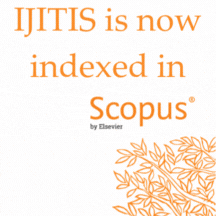Model Predictive Control with Softened Constraints for Hybrid Electric Vehicle
DOI:
https://doi.org/10.15157/IJITIS.2023.6.2.1130-1149Keywords:
Parallel hybrid electric vehicle, model predictive control with softened constraints, clutch engagement, tracking speed setpoints and torque, high comfortability, low jerkAbstract
This research proposes a model of a parallel hybrid electric vehicle (HEV) with a completely automated friction clutch linking the combustion engine and the main electric motor in order to switch between the pure electric driving mode and the combustion engine driving mode. For this HEV, a new model predictive control (MPC) method with relaxed limitations is created and implemented to regulate the vehicle's speed and torque of the electric motor and combustion engine. The MPC system with loosened limits can improve the hybrid vehicle's manoeuvrability and stability when tracking required speeds and torque requirements. This MPC is also capable of changing driving modes with a clutch that engages rapidly and smoothly. In spite of the dynamic limits imposed on states, inputs, and outputs, the HEV can better and more quickly track the target speeds and torques. The resilience and stability of a control system can be vastly improved by MPC with relaxed limitations.









